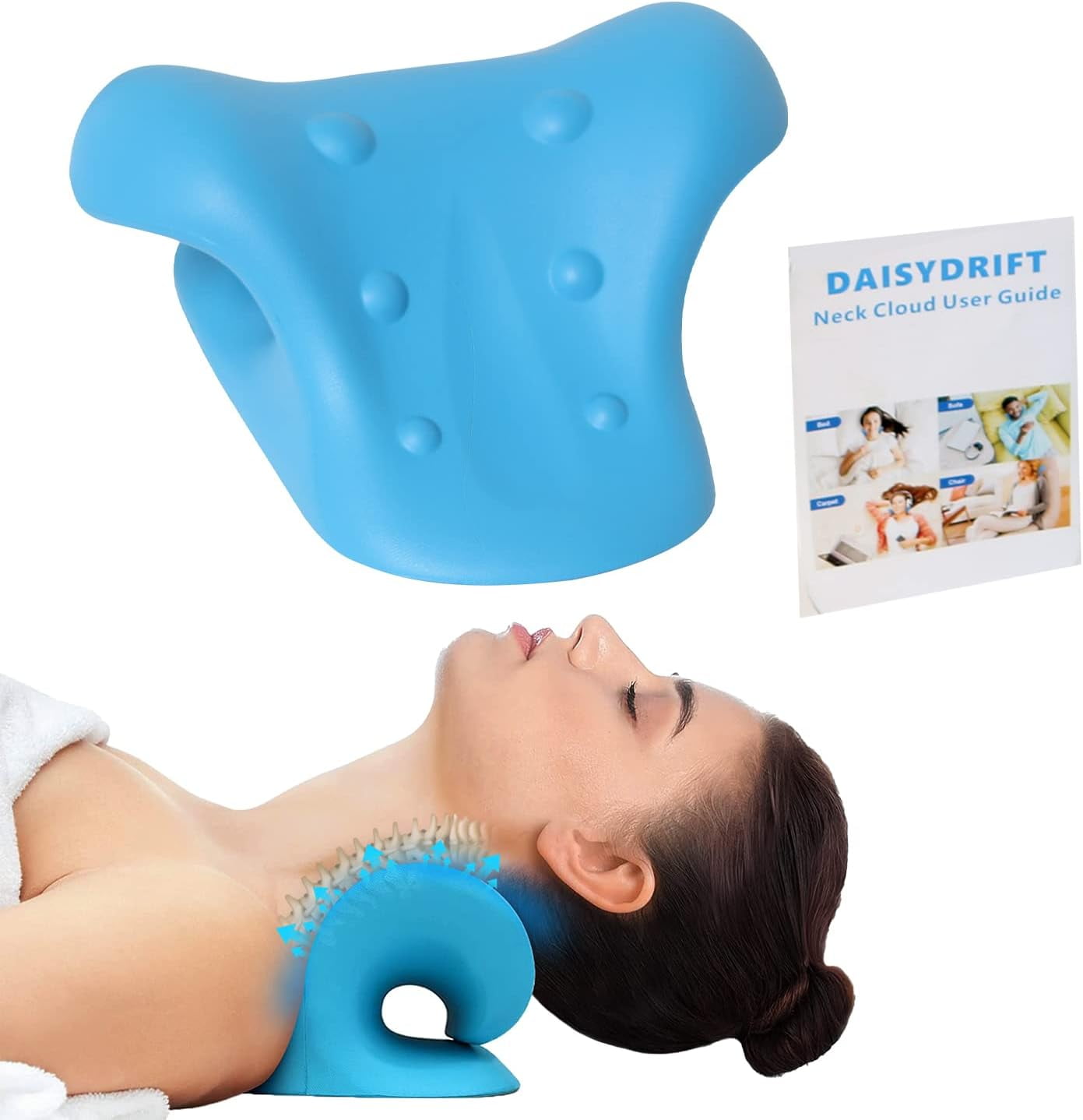Discover Neck Cloud: A Straightforward Solution for Neck Pain and Tension
Discover Neck Cloud: A Straightforward Solution for Neck Pain and Tension
Blog Article
The Influence of Anxiety on Neck Pain: Approaches for Lowering Stress and Pain
In today's hectic world, it's no trick that stress has actually become a widespread variable in the beginning and exacerbation of neck discomfort. Join us on a trip to untangle the influence of tension on neck pain and find efficient means to alleviate discomfort and boost overall high quality of life.
Understanding Stress-Related Neck Discomfort
Neck discomfort is an usual issue that can typically be connected to stress and anxiety. Stress-related neck discomfort can show up as stress, tightness, or discomfort in the neck and shoulder area. The connection between stress and neck pain depends on the body's physical feedback to stress and anxiety, which can cause muscular tissue stress and tightness in the neck muscles. Chronic stress can lead to persistent neck discomfort and worsen present conditions like cervical spondylosis or muscle strains.

Identifying Common Tension Locations
Regularly experienced by individuals under tension, stress areas in the body can supply valuable understandings into the physical symptoms of emotional strain. One typical tension area is the neck, where anxiety typically materializes literally. Tension headaches, tight neck muscles, and restricted series of motion prevail signs and symptoms of stress-related neck tension. The shoulders are one more usual area where tension collects. Stress can cause the muscle mass in the shoulders to tighten up, leading to discomfort and discomfort. In addition, the upper back is susceptible to stress accumulation, especially in individuals that experience persistent stress. Poor pose and long term sitting can intensify stress in this field. The jaw is also a typical place for stress-related stress, as lots of people clench their jaw or grind their teeth when worried. Knowing these usual stress locations can help individuals acknowledge the physical indications of stress and anxiety and take steps to address them before they escalate into chronic discomfort or discomfort.
Applying Leisure Techniques
To successfully take care of stress-related stress in the body, carrying out relaxation techniques is essential. Leisure strategies are beneficial devices for reducing neck pain caused by stress and anxiety. Deep breathing exercises can aid relax the mind and loosen up tense muscles in the neck and shoulders (neck cloud). Practicing mindfulness reflection can likewise be helpful in easing anxiety and promoting leisure. Dynamic muscle mass leisure, where you methodically strained and afterwards kick back various muscle mass groups, can release built-up visit our website tension in the neck area. In addition, activities like yoga and tai chi integrate both physical movement and relaxation, making them effective techniques for minimizing stress and neck pain. Taking normal breaks throughout the day to stretch and take a break can prevent muscular tissue stiffness and stress from building up. By integrating these leisure techniques right into your day-to-day routine, you can assist handle tension levels, lower stress in the neck, and relieve discomfort related to stress-induced neck pain.
Including Self-Care Practices
Incorporating self-care practices is essential for keeping general well-being and managing stress-related neck discomfort efficiently. Participating in normal physical activity, such as mild extending exercises or yoga exercise, can help reduce stress in the neck and shoulders. Practicing great position throughout the day and taking regular breaks from long term sitting or screen time can additionally avoid strain on the neck muscle mass.
Furthermore, prioritizing ample sleep and establishing a consistent sleep routine can add substantially to minimizing stress and anxiety degrees and advertising leisure. Developing a calming going to bed regimen, such as reading a publication or taking a warm bathroom, can help prepare the body and mind for peaceful sleep. In addition, preserving a well balanced diet abundant in nutrients and staying hydrated can support overall health and wellness and lower inflammation that might exacerbate neck discomfort.
Incorporating mindfulness techniques, such as deep breathing exercises or reflection, can aid take care of tension and promote leisure. Taking some time for oneself, taking part in hobbies, and setting boundaries to protect individual time are also crucial aspects of self-care that can add to minimizing anxiety and relieving neck pain.
Seeking Expert Help
Just how can individuals effectively attend to persistent neck discomfort that is impacting their every day life and well-being? Looking for professional assistance can be a vital step in handling and alleviating neck discomfort. Consulting with healthcare experts such as chiropractors, physiotherapists, or orthopedic experts can give important neck cloud understandings and customized therapy strategies. These professionals can perform comprehensive analyses to diagnose the underlying reasons for neck discomfort and recommend appropriate treatments.
Chiropractors specialize in spine control strategies to boost alignment and decrease tension in the neck location. Physiotherapists supply targeted workouts and stretches to strengthen muscles, improve versatility, and improve general neck function. Orthopedic experts can give innovative clinical treatments such as shots or medical alternatives for extreme instances of neck discomfort.
Verdict

Stress-related neck discomfort can show up as stress, rigidity, or pain in the neck and shoulder location. The link in between stress and neck discomfort lies in the body's physical reaction to anxiety, which can result in muscular tissue click to find out more tension and tightness in the neck muscles. Tension headaches, rigid neck muscular tissues, and limited array of activity are typical signs of stress-related neck tension. By integrating these relaxation techniques into your daily regimen, you can aid take care of anxiety levels, lower stress in the neck, and minimize pain connected with stress-induced neck discomfort.

Report this page